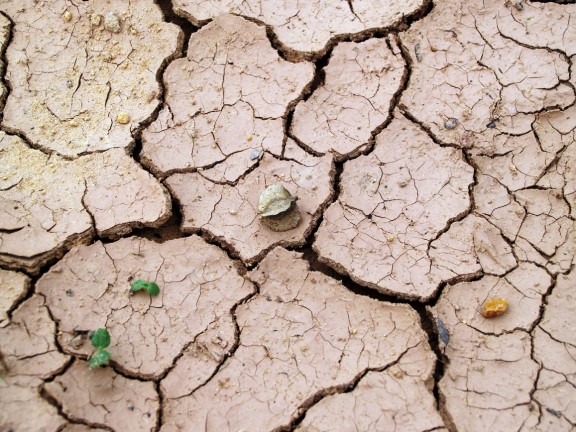In today’s digital world, customer experiences have taken the front row of business priorities. As they say—experience has become the new product. Fostering a seamless and enriching user experience can make a significant difference in engaging your potential customers effectively, therefore increasing conversion rates and revenues. To cultivate this enriching experience, you need advanced tools, and one such vital tool is Adobe Experience Manager (AEM). This comprehensive guide offers practical insights into AEM implementation best practices.
Table of consent:
What is Adobe Experience Manager?
AEM Implementation Best Practices – Getting Started
Best Practices in Developing Adobe Experience Manager (AEM)
Development, Software and Content Architecture
Coding Guidelines
JCR & OSGi Integration
Java API Best Practices
Best Practices in Deploying AEM
Oak Deployment and Performance Optimization
Administering AEM Best Practices
AEM Assets Management
AEM Sites Content Management And Compliance
Authoring – AEM Assets Best Practices
File Formats Support
Encoding Source Video Files
Optimizing Quality of Images
How TTMS Can Help You with Implementing Best Practices to Your AEM System?
Comprehensive Planning and Strategic Approach
Experts at Your Disposal
Personalized Training and Support
Conclusion
1. What is Adobe Experience Manager?
Before diving deep into the best practices for its implementation, let’s lay down an understanding of what Adobe Experience Manager actually is. Serving as the backbone of digitized marketing efforts, AEM is a content management service that aids organizations in creating websites, mobile applications, and forms to manage their marketing content and assets more efficiently.
Elegantly splitting ‘content’ from ‘presentation,’ AEM ensures swift modifications without disrupting the overall design or compromising brand consistency across all platforms. Being a part of Adobe Marketing Cloud, it allows marketers to leverage data-driven methods for delivering personalized content and thereby enhancing overall user experiences. With the introduction of features like automation, artificial intelligence, and personalization—AEM stands tall in offering organizations an excellent toolkit to scale their digital infrastructure seamlessly.
To quote an interesting fact on how AEM enhances customer experiences – according to Adobe, “Shoppers can register and shop without waiting” with AEM eCommerce integration. Such features play a pivotal role in driving conversions by making consumers’ shopping journeys pleasingly uninterrupted.
Being aware of what AEM offers is essential; however, implementing it requires certain best practices which we will discuss next to extract maximum value out of it!
2. AEM Implementation Best Practices – Getting Started
Venturing into Adobe Experience Manager (AEM) implementation? Knowing the appropriate steps to take can sometimes be puzzling. With ‘best practices for implementing Adobe Experience Manager’ as your guide, those initial steps towards a successful experience become a joyful walk in the park rather than an uphill climb.
An essential starting point is understanding the scope and requirements of your specific project. This exploration should include stakeholders’ needs, technical constraints, security considerations, and end-user expectations.
Here are four critical items that we recommend prioritizing early on during your AEM implementation journey:
Setting clear business goals: Define what success would look like for the project. Your objectives should align with overall business needs so you’re sailing smoothly towards shared success.
Understanding platform capabilities: Adobe Experience Manager is versatile with a multitude of tools at its disposal such as Sites, Assets, Campaigns, and more. Understanding these functionalities will help tailor an efficient solution suitable for your specific context.
Aligning team competencies: An AEM project demands a variety of skill sets from design through to development and maintenance roles so assembling a knowledgeable team is key.
Planning for content migration & management: Content forms the bedrock of any digital experience management platform; hence careful planning around its organization, migration, and workflow establishment becomes fundamentally crucial.
Another strategic move which comes highly recommended especially when discussing AEM implementation best practices, involves setting up an effective caching method at the dispatcher level; thanks to research showing that “efficient caching strategies at the AEM dispatcher level further boost site speed and user experiences.” This proves that putting in extra care at the start of your AEM implementation journey pays off massively in giving your users a speedy, seamless experience.
With these strategies for starting right, you’re well on course towards achieving an effective best practices of Adobe AEM implementation. As we continue our exploration into individual components ranging from development to administration, remember: every step forms part of this venerable whole known as AEM component best practices.
3. Best Practices in Developing Adobe Experience Manager (AEM)
In this section, we delve into developing AEM – detailing the AEM performance best practices to consider while establishing development, software, and content architecture. Subsequently, we shall examine AEM coding best practices, explore JCR & OSGi integration methods then finish off by highlighting Java API best practices.
Development, Software and Content Architecture
Starting with the right foundation is pivotal in ensuring a robust AEM implementation. Here are some of the key guidelines when structuring your development process:
Initiate an end-to-end approach: This ensures all aspects of your projects from start to finish are well accounted for.
Maintain organized code repositories: Clean codes enable easier troubleshooting down the line.
Implement version control systems: Such systems can help manage changes to source code over time and recover previous versions if needed.
Additionally, while constructing your content architecture, bear in mind that the structure should be versatile enough to cater to different types of multimedia content without compromising the user interface or experience.
Coding Guidelines
Coding remains at the core of any successful software development venture which makes adhering to AEM coding best practices an absolute necessity. As such:
Follow standards: Programmers in your team should adhere strictly to common conventions that contribute towards easy readability and maintainability of code.
Implement Modularity: Encourage a modular approach within components where they ought to be built divided into separate modules — allowing them to function independently hence reducing dependencies.
Who could disagree when I say that understanding these coding guidelines creates efficient and maintainable code?
JCR & OSGi Integration
JCR (Java Content Repository) was designed as a standardized method for accessing content bi-directionally on a granular level within logical trees (nodes). It provides fine-grained security controls which pushes it ahead as one method you’d use together with other techniques like Sling Resource Resolution & OSGi (Open Service Gateway Initiative) that meshes perfectly with a component-like architecture of a container.
AEM primarily uses JCR for content repository, and when it is integrated with OSGi, this impressive powerhouse dynamo serves as the foundational platform for building robust applications. Glory be the outcome!
4. Java API Best Practices
Effectively implementing AEM requires using Java API tools.
Expert advice recommends:
Avoid Deprecated APIs: Aim to use updated interfaces instead.
Use Sling Models over WCMUse objects: The former has better adaptability and brevity which leads to improved maintainability.
Stick to One Repository Session in Request Scope: Understanding session usage controls resource conflicts across various components.
Seeing these coding best practices in action could benefit both new developers and veterans looking to advance their skill set.
So there you have it, top best practices of Adobe Experience Manager Implementation. Indeed, no mountain is too high if you climb with care!
5. Best Practices in Deploying AEM
Carrying out an AEM implementation isn’t about merely setting up the system and turning it on. The deployment process is a significant factor to consider, with individual components like Oak deployment, community content handling, and UI selection necessitating considerable thought.
Oak Deployment and Performance Optimization
Oak Repository, at the heart of Adobe’s Experience Manager (AEM), significantly influences performance optimization. It provides a modular and scalable architecture catered to high-performance websites. For successful Oak deployment, you need to pay heed to several concerns:
Horizontal vs Vertical scaling: Examine project specifications carefully before deciding between these two methods. Horizontal scaling involves adding more nodes, supporting better distribution but requiring a competent clustering setup. In contrast, vertical scaling adds resources such as CPU or RAM for immediate performance improvements.
Use Online Revision Cleanup: Try online revision cleanup instead of offline one as it causes less disruption with smoother continuity of your applications while cleaning junks from repositories.
Node Store choice: Select the Node Store type according to your needs – SegmentMK (for general purposes) or DocumentMK (clustering solution).
With regard to these methods, bear in mind that what works best will depend on the individual requirements of each particular instance of an AEM deployment.
Remember that the best outcomes seldom come from using one-size-fits-all solutions but rather making prudent decisions that suit unique project requirements while strictly following these AEM deployment best practices. Always bear in mind that a well-executed AEM system is built upon tailored functionalities keeping performance optimization at its core.
6. Administering AEM Best Practices
As we delve into the realm of Adobe Experience Manager (AEM), knowing some essential administrative best practices can make a significant difference. From managing your AEM assets to ensuring content compliance on AEM sites, these best practices promise to enhance the overall efficiency and effectiveness of your implementation.
AEM Assets Management
Managing digital assets is one of the principal functionalities provided by AEM. Here are some effective ways to improve your approach:
Proper Naming Conventions: Keep file names descriptive yet brief. Avoid special characters as they can lead to search issues.
Use Metadata Effectively: Metadata is the core for searching and retrieving assets in AEM efficiently. Make sure you utilize it effectively.
Regularly Audit Your Digital Assets: Regular audits assist in identifying obsolete or redundant content that could be removed, resulting in faster system performance.
Remember, “Monitoring AEM Sites and Assets Performance, memory issues, indexing issues, and replication issues ensures optimal system functioning.” Being proactive with your management strategies will save ample time down the line.
AEM Sites Content Management And Compliance
When working with content management on an Adobe Experience Manager site, a few practises can ensure smooth sailing:
Using Consistent Templates: By standardizing templates across different pages or layouts, manual effort decreases significantly while also providing consistency to end users.
Approving Workflow Management: Maintain an approval process before publishing any content live on-site to prevent any potential oversights or errors.
Validating Compliance With WCAG: Ensuring that your website meets the Web Content Accessibility Guidelines is both ethically responsible and legally required in most jurisdictions.
Identifying symptoms like slow loading pages, slow creation or editing, high CPU utilization, and OutOfMemoryError helps diagnose AEM performance problems. Regular monitoring is crucial to maintaining a healthy system environment.
Following these best practises of AEM implementation will set you on the path toward a successful and optimized Adobe Experience Manager.
7. Authoring – AEM Assets Best Practices
File Formats Support
When it comes to content authoring in Adobe Experience Manager (AEM), being aware of the file formats that AEM supports is crucial. Typically, AEM has a wide range of support for popular formats including JPEG, PNG, GIF, and BMP files for images; MP4, MKV and MOV files for videos; PDF, PPTX, XLSX and DOCX files for documents. However, always be sure to verify the list of supported file types according to your specific version of AEM as these might differ.
Ensuring you utilize the correct file format doesn’t only allow for reliable content rendering but also helps prevent unexpected crashes or errors within your website’s performance. Taking time to familiarly yourself with this aspect will minimize hiccups when integrating external assets into your digital experience strategy.
Encoding Source Video Files
To optimize video uploads and streaming efficiency on your AEM platform, there are several best practices when encoding source video files:
Format Choice: As mentioned above, stick to widely used formats like MP4 or MOV.
Bitrate considerations: Striking a balance between video quality and bandwidth utilization is beneficial. High bitrates enhance video quality but can cause buffering issues during playback.
Resolution settings: Match the resolution setting to the typical viewer’s device screen size for optimal viewing experiences.
Ignoring these points could lead not only to poor user experience due to buffering but also wasted storage space and unnecessary expenses on server costs.
As highlighted here storing product data natively in AEM or synchronizing it from an eCommerce engine enables efficient management and presentation of product information such as videos getting all stages right is paramount for smooth operation.
Optimizing Quality of Images
Effective management of images is key to an efficient AEM system. It begins by ensuring product assets are held, such as images and videos, and categorized based on structural and marketing criteria for easy organization and retrieval.
Other strategies include:
Using appropriate file formats: Stick with JPEG or PNG for most web images.
Implementing image compression: Effective use of compression can minimize storage needs while also speeding up the load time of your webpage.
Proper sizing: Resize photographs to be in line with their display size on your site. An oversized image will slow down loading times without necessarily improving visual quality depending on the viewer’s device.
Solidifying these practices within your daily operations not only enhances your website performance but also enriches user experience and perception of your brand.
In general, mastering AEM content authoring entails understanding file format support, encoding source video files correctly, and optimizing the quality of images for prime results. By paying close attention to these aspects, you can enhance both user engagement & conversion rates while maintaining effective storage management practices.
8. How TTMS can Help You with Implementing Best Practices to Your AEM System?
As an industry leader in content management solutions, TTMS stands tall. Our expertise and unparalleled knowledge of Adobe Experience Manager stem from years of consistent use, training, and engagement with this dynamic tool.
Let me share how we can make your AEM implementation a success by focusing on our unique approach:
Comprehensive Planning and Strategic Approach
The first step to guaranteeing successful implementation lies in meticulous planning. At TTMS, we provide a detailed roadmap that outlines every facet of the upcoming project, thereby ensuring maximum clarity. Following Adobe AEM implementation best practices is indeed beneficial but becomes even more potent when coupled with an effective plan.
Experts at Your Disposal
While some may have dabbled here and there, our team constitutes certified Adobe professionals who’ve dealt with complex projects across the globe. With their advanced knowledge of content management systems like AEM, they ensure seamless execution.
Personalized Training and Support
Beyond merely implementing or overhauling the system for you, we invest time in your long-term proficiency with AEM’s depth of functionalities. We offer comprehensive training tailored to your needs so that ongoing site maintenance doesn’t seem daunting anymore.
Essentially, partnering with TTMS for your AEM adoption instills confidence as it combines industry know-how at its best with personalized solutions for your needs – making us not just another partner but ones who value long-term relationships built on trust and shared successes.
9. Conclusion
As we put a cap on this comprehensive discussion, it’s valuable to recap the significance of adhering to AEM implementation best practices. The importance of these thorough guidelines can assist users, from beginners to advanced, in delivering an efficient and engaging digital experience.
In our exploration throughout Adobe Experience Manager’s implementation journey, strategies spanning overall system setup to administration, content authoring, deployment methods were laid out— each highlighting the integral components towards achieving functional optimisation for your AEM project. Beginning with thoughtful planning phases and robust structures during development cycles; transitioning smoothly into proficient deployment management; arriving at practical systems administration- all contribute substantially towards reaping benefits from your Adobe Experience Manager ecosystem.
What’s notable about Adobe Experience Manager (AEM) is its extensive support for versatile file formats and encoding systems. This broad compatibility assists further in sculpting a more streamlined and effective digital content delivery platform.
Ultimately however, AEM is a sophisticated tool that demands expertise during both its technical execution as well as in guiding strategic decision-making processes around its use. TTMS evolves as an excellent partner option here. Exhibiting vast experience within the AEM landscape makes us adept at navigating even complex integrations while ensuring adherence to best practice norms comprehensively.
The consistent theme resonating through this article reinforces the critical notion – mastering best practices leads directly to deriving optimum value from your Adobe Experience Manager (AEM). We serve as the pathfinder for organizations aiming to create dynamic customer experiences marked by superior quality control and peak performance. Thus, Implementation Success in Bridging User-Experience Gaps would not be feasible without careful considerations leading up to educated choices guided profoundly by following Adobe Experience Manager implementation best practises. Contact us!
Read more








